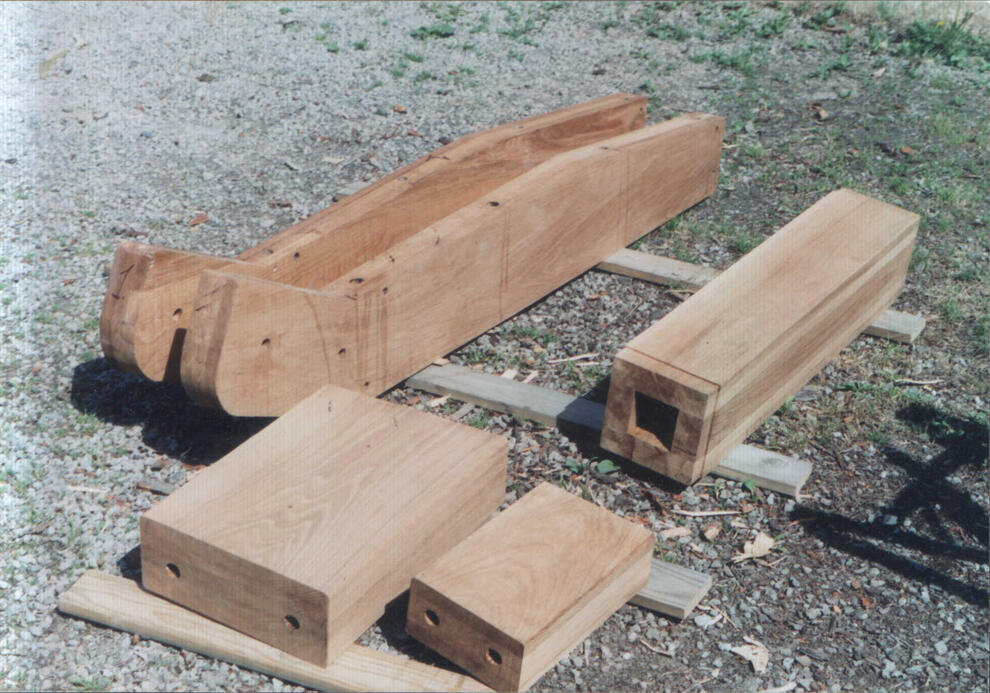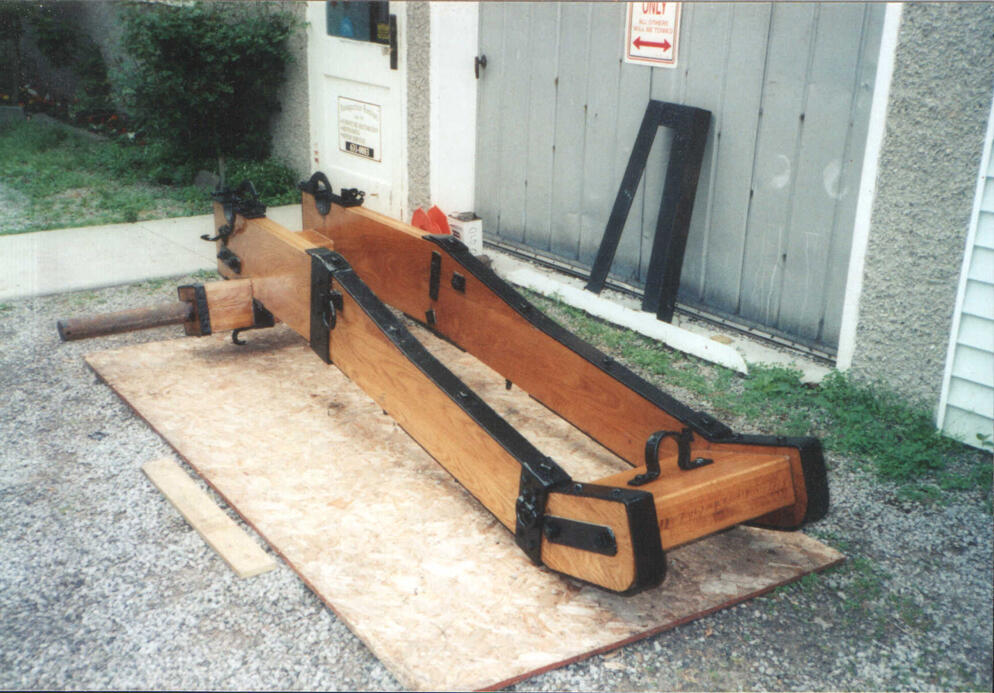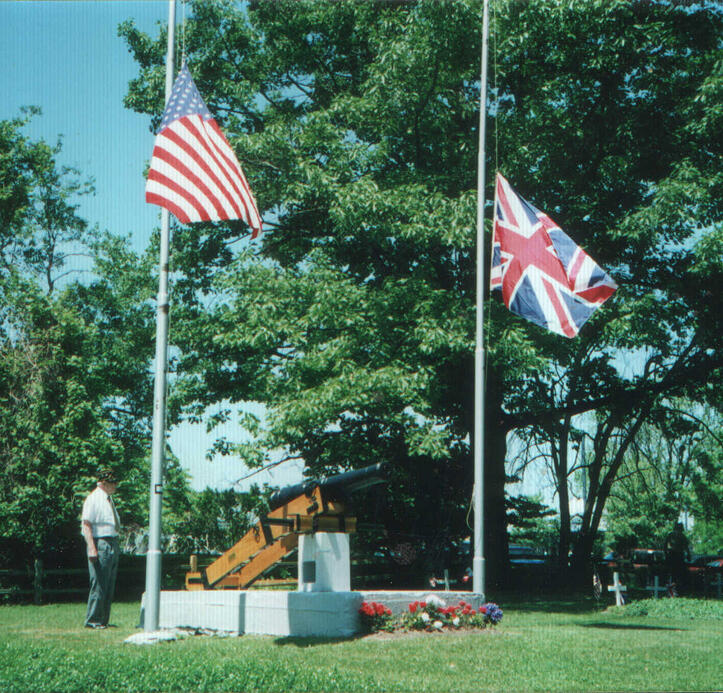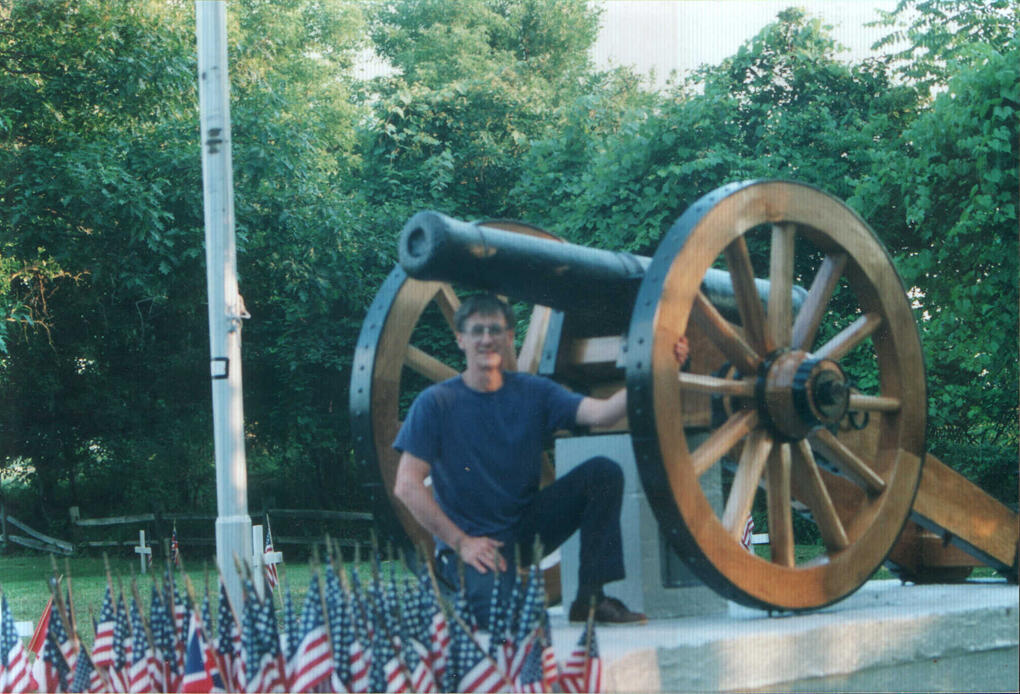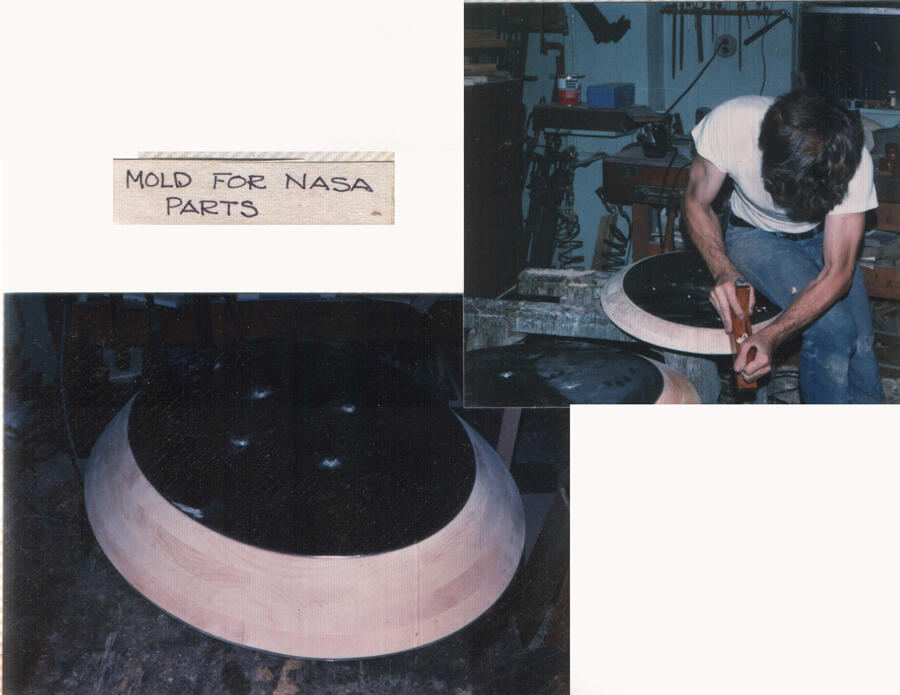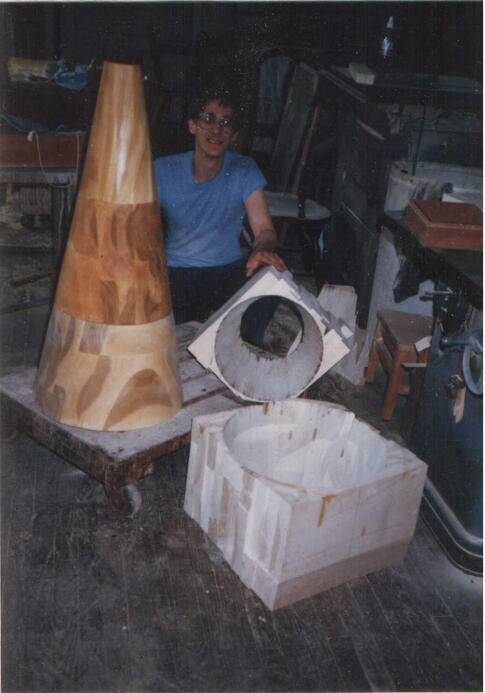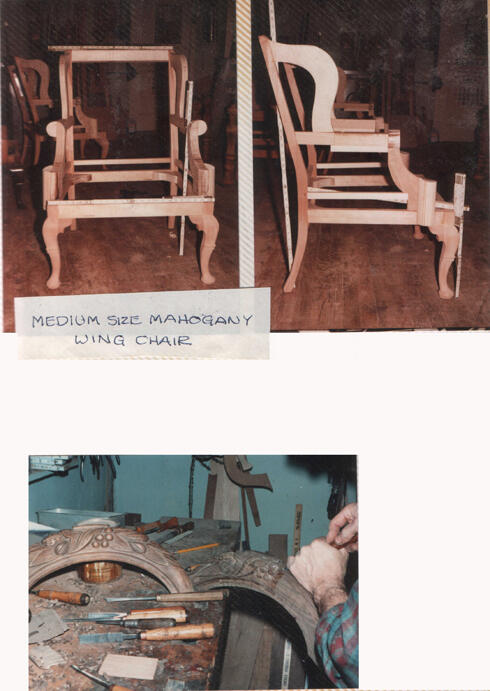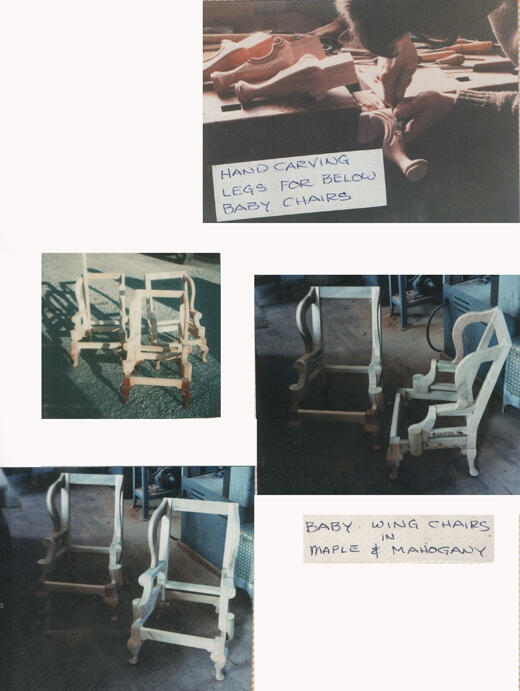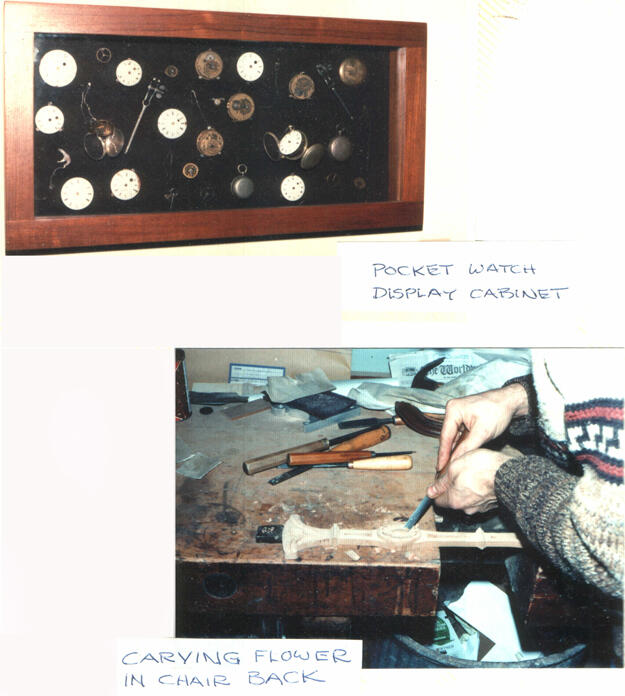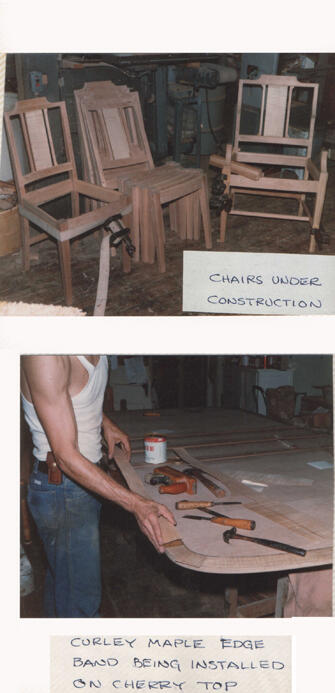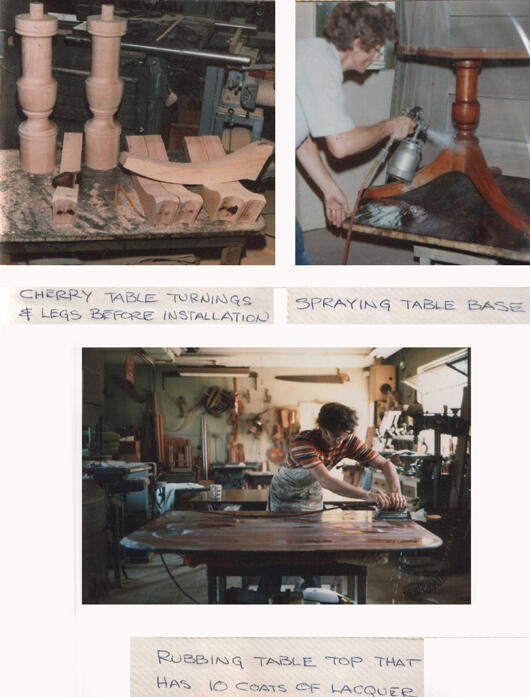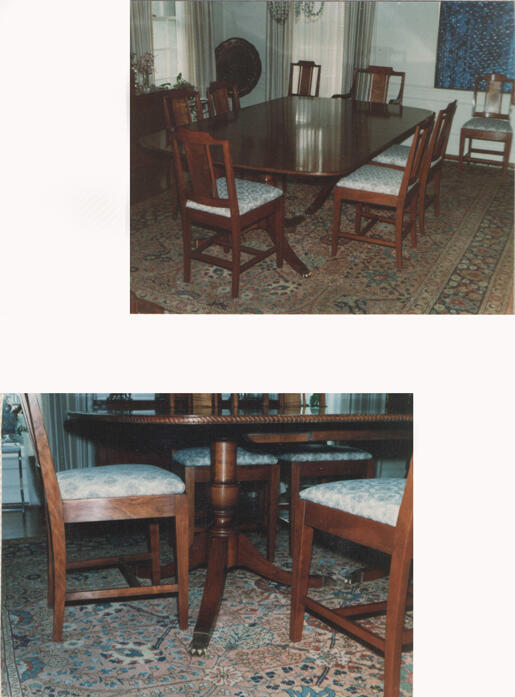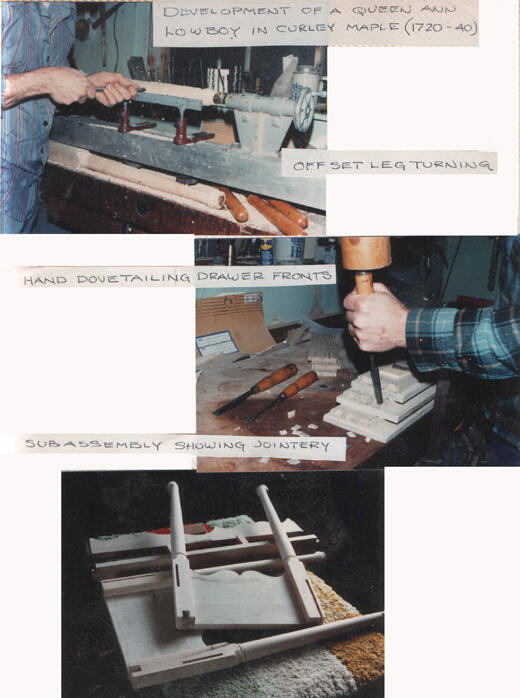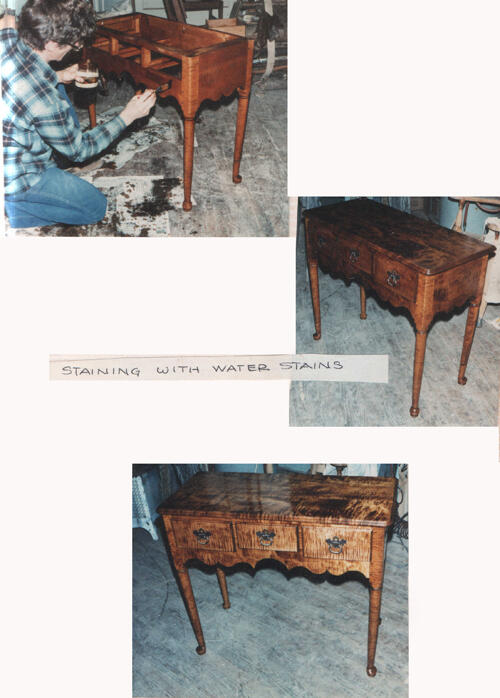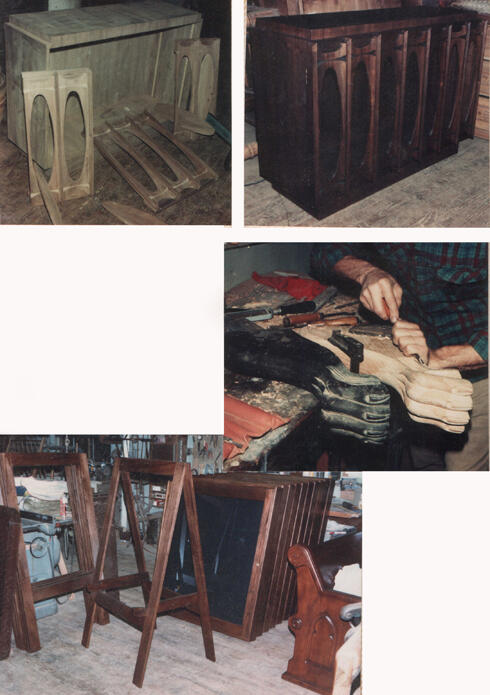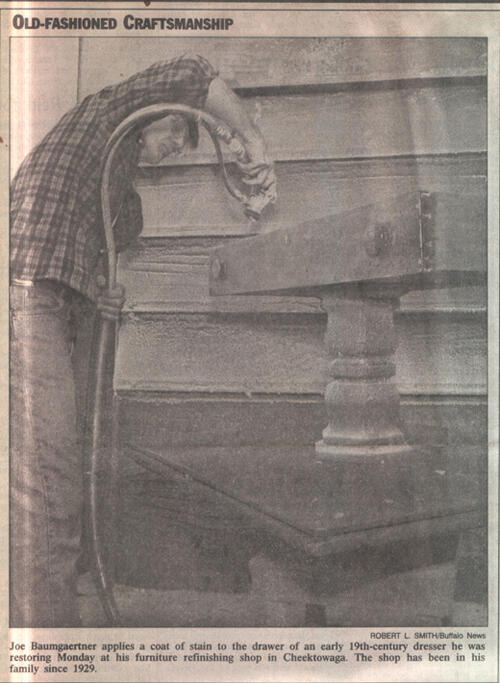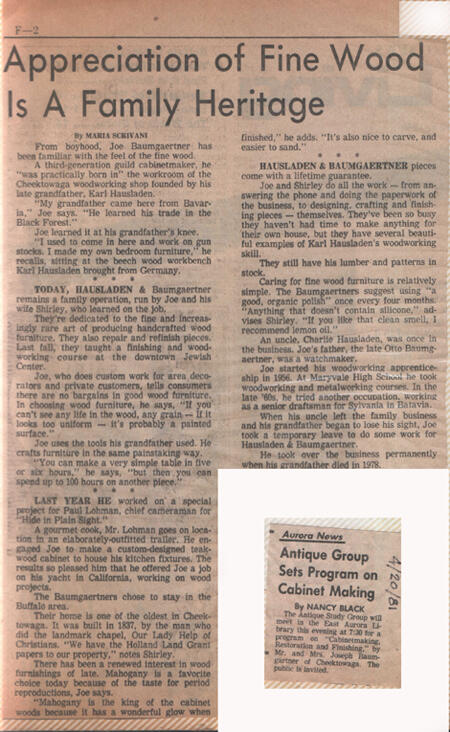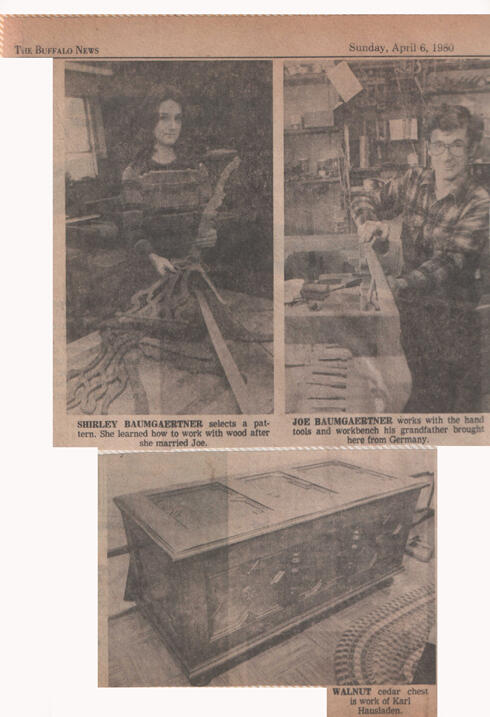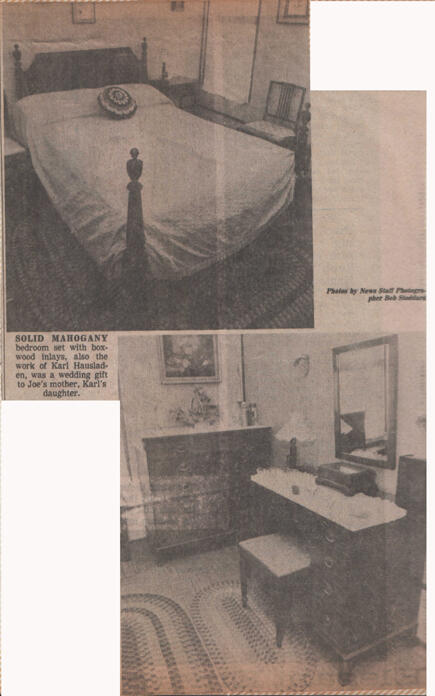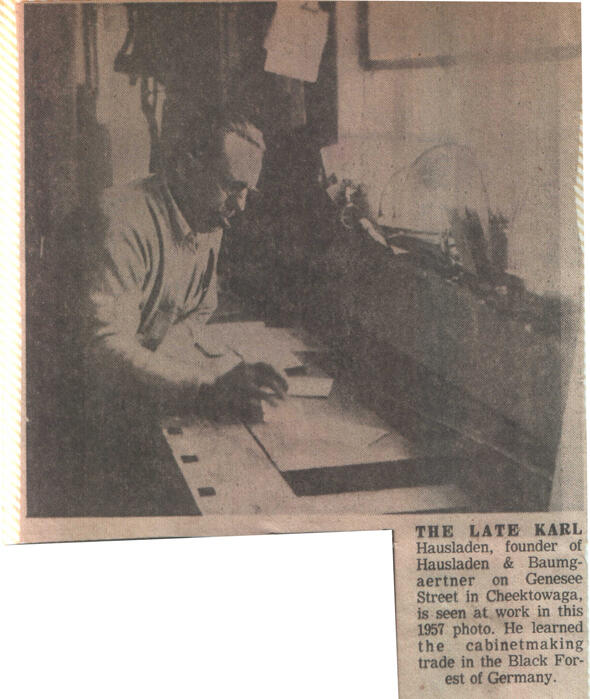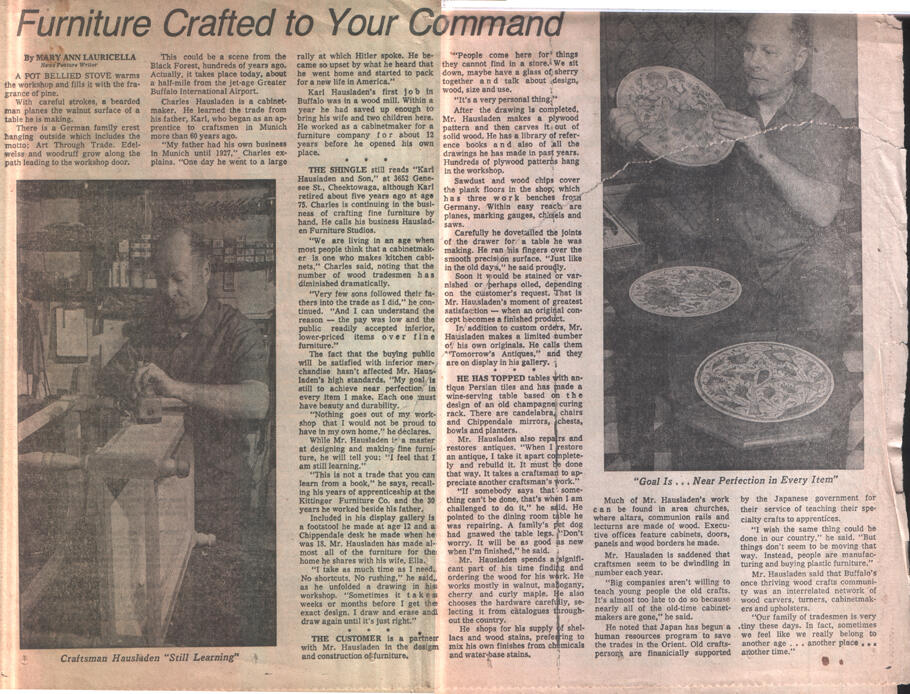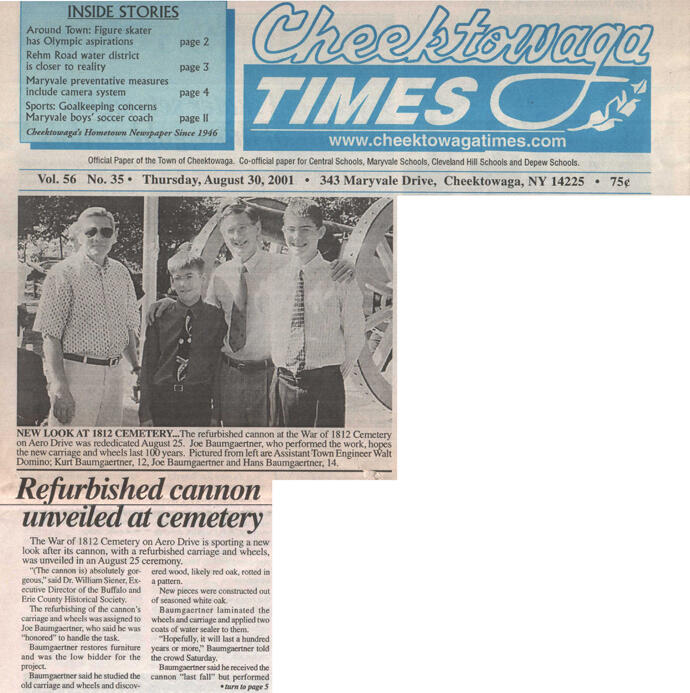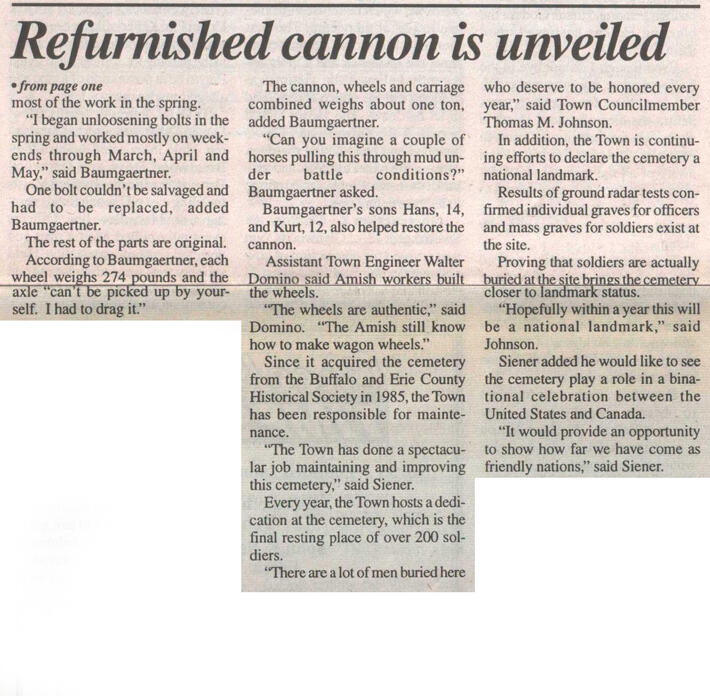Baumgaertner Furniture
Baumgaertner Furniture, a family business, has worn its trail through three generations of woodworkers, over two continents, and many years of hard work and dedication to keep “the trade” all about quality.With three generations of experience, we specialize in Furniture Refinishing, Restoration and Repair. We can carve, turn, or create most wooden parts needed for furniture, and many unusual items such as a cannon carriage, and rocket nose cone patterns for NASA, both shown in our online Gallery. We can offer quotes for hand crafted furniture made to your specifications, and hand stripping (sorry no paint finishes). We work as a family, representing over 100 years of experience, and take great pride in a job well done!
Please call for an appointment to visit our shop, or e-mail us through our Contact page.
Gallery
Some of the fascinating projects we have been involved in over the years, including some that made the local news!Our history includes working on the War of 1812 Cemetery Cannon memorial, part of the National Register of Historic Places. We were also contracted by NASA to build rocket nose-cone molds for the USA Space Program.However, our work also includes the traditional furniture repair and refinishing for your house or business. No job is too small for our craftsmanship - we are always ready to help!
About
Baumgaertner Furniture, a family business, has worn its trail through three generations of woodworkers, over two continents, and many years of hard work and dedication to keep “the trade” all about quality. Beginning in Germany, the late Karl Hausladen (1895-1978) originated the line when he took up an apprenticeship in Bavaria just prior to World War I.Starting at the age of 14, the young Karl would endure a harsh working climate, beyond the imagination of many young workers today, to earn his education. The work was grueling, and the shop master was strict; Karl literally stood on hand 24/7, just for the benefit of the experience, and a meal or two per day. There were, naturally, no days off, and the concepts of vacation pay or unionized protection would have probably struck young Karl as an indulgent fantasy. All of his sacrifice, of which there was a great deal more than most of his contemporary counterparts can appreciate, was for its own sake – just to advance his skill in his trade.At the end of his two year apprenticeship, Karl began another phase of his education, hitting the road to find work with anyone who might require his woodworking services. This phase of journeyman work was part of the standard course for any apprentice seeking to establish himself and his abilities in his trade, and was just as rigorous and lean a way of living as the apprenticeship had been. Traveling through Germany, Karl would literally work hand to mouth, accepting only a few small meals, or even a plate of scraps, each day as payment for his work. For two years, Karl was required to train this way, in order to earn his proper apprenticeship paperwork, which would signify the conclusion of his education and allow him to create his own shop.As soon as the war was over, Karl, now legally a Cabinetmaker, built his own cabinet shop in Munich. He enjoyed some good times in the beginning, employing, at his economic zenith, seven men; good times, however, fell into scarcity again for Karl with the downward spiral of the German economy and ultimate depression that hit in the early 1920’s. The tides were changing for Karl, and, despite being no stranger to hardship, he came to the conclusion that the best way to procure his future would have to be emigration.Karl saved for two years and, even while maintaining his business and breasting all the difficulties of the time in his country, managed to immigrate into America in 1926. For the time being, he was forced to leave his wife and children behind in Germany, to make a start in the United States. In another two years time, he would be able to purchase a property in Cheektowaga, New York, where he would eventually resume his business.The property he purchased, by interesting coincidence, was owned by the Batt family, another family of European emigrants, who vowed to build a church here in America on their arrival. Years later, Our Lady Help of Christians would become the fruition of this dream. Situated on the corner of Union and Genesee Street in Buffalo, the church would become a National Historical Landmark, making the Batt name famous and giving their old home special significance. Joe Baumgaertner, Karl’s grandson, still possesses the Title and Search indicating the Batt family’s original ownership of the property Baumgaertner Furniture now operates on.Two years after rebuilding the home he purchased from the Batt family, Karl Hausladen would raise enough money to bring his two children, his wife and her mother to America to be with him. In 1929, he would finally be able to formally restart his business, marking his home, “Karl Hausladen, Furniture Maker,” and working out of the old barn in back. Through the depths of the Great Depression, he would spend long hours there to make ends meet. Starting in 1935, Karl’s son Charles would join him there, beginning as his father’s apprentice. From then until 1973, when he retired, the business was renamed “Karl Hausladen and Son.”Over these years, the Hausladen’s business would attract customers from all over Erie County, as they completed work for the Buffalo Savings Bank, Bethlehem Steel Plant and the Maryvale School System, among others. Regrettably, in 1946, a faulty oil heater caused a fire in the shop, burning it down and sending the Hausladens to the drawing board to rebuild their fortunes. Undiscouraged, in only a year’s time they would construct a new facility designed for building furniture, still in use today by Karl’s grandson, his wife and their two boys.Before retiring, Karl would spend a few years tying together both where he had come from, and where his legacy would pass on to. In 1959, he traveled back to his hometown in Bavaria, where he had first learned his trade. Upon finding the old workshop where he had first apprenticed, many years ago, he was surprised to find a drawer he had made during that time, still used by the current owner. Some years after that trip, completing the course he had started, Karl took on his last pupil, Joseph Baumgaertner, his grandson. Joseph would prove to be as bright and hardworking as his grandfather, though he was, thankfully, not forced to endure the same trials of Karl’s early years.Learning the trade from his grandfather’s knee while his parents worked elsewhere, Joseph (Seppi) not only took on the old tricks Karl had learned in Germany, but understood the advancements woodworking had taken since that time, augmenting his skill with new methods of finishing and design. Earning a college degree in Tool Design and Engineering, he rounded and furthered his original education to encompass as many techniques as he found available. In 1976, he took over the business, adding Baumgaertner to the name (and eventually making it the sole title), and ever since has operated it with a quality befitting his grandfather’s student.The work Joseph, Charles and Karl put into their trade over the years is maintained today with the same level of care and dedication that were first put to service in a simple workshop in Germany. As Karl would say, “with your hat in your hand, you can go through the whole land,” – it was a German saying he would use, one that encapsulated his practical philosophy: Patience, care and politeness were the spirit behind success, as they had been for him in Germany, as they still are now. Joseph Baumgaertner continues to run the shop in Cheektowaga, working with his wife and – when they can spare their time between college studies – his sons. This passing of the trade down to a fourth generation, down through almost 100 years, seems only fitting of the care and dedication offered up by each of the tradesmen, down the family line, who have come to embrace it.
Contact
If we do not contact you within 2 business days, please call us at the number below during regular business hours to follow up. Your inquiry is important to us!
Hello! We are retiring and closing Baumgaertner Furniture at the end of November 2024. Joe has been in the business for over 70 years, and we have been running it together for over 50 years.Joe started as a teenager working as an apprentice under his grandfather, who originally founded the business in Germany and later brought it to America in 1929. Between all generations, Baumgaertner Furniture has been successfully running for over 100 years, across two continents.We sincerely appreciate ALL OF OUR WONDERFUL CUSTOMERS throughout the many years. Every single person walking through our door has brought new and interesting puzzles for us to solve, and we enjoyed working with everyone very much!As we begin this new chapter in our lives, we are looking forward to some rest and relaxation after a lifetime of helping people "recycle" instead of throwing out!If you have any questions, comments, or well-wishes, please feel free to contact us by the website or phone. THANK YOU ALL VERY MUCH!Joe and Shirley Baumgaertner
